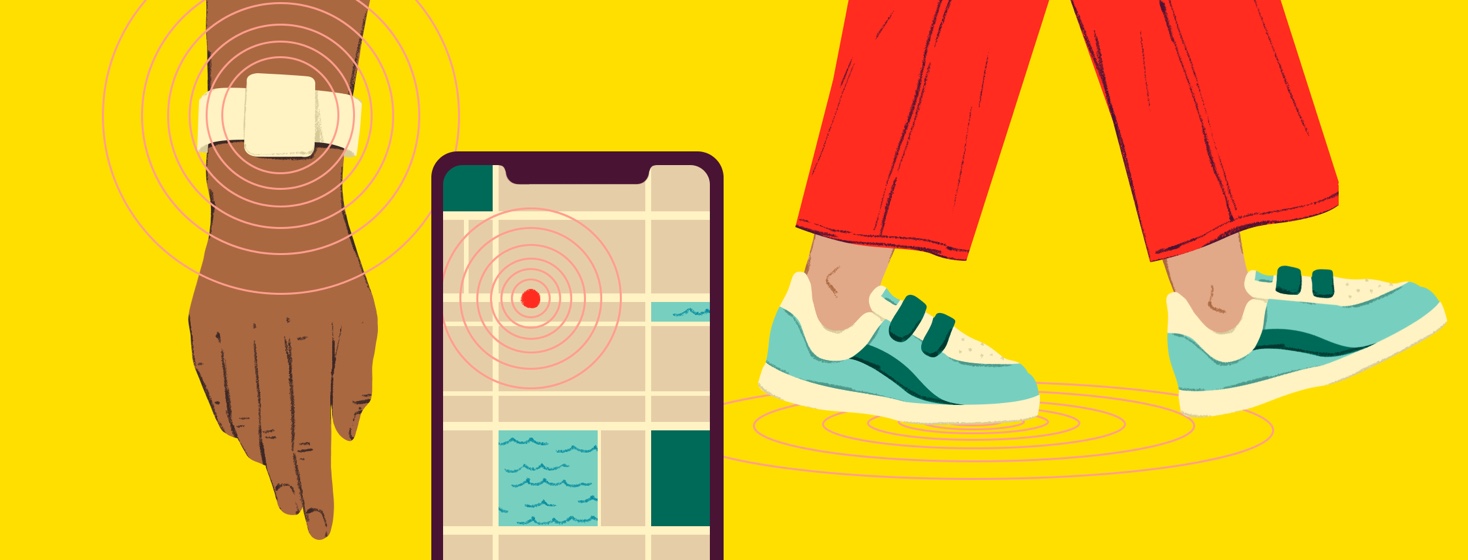Innovations for Safety: Location Tracking Devices
A few years ago, a friend and I tried to figure out a creative solution to give her peace of mind around her little dude with autism. After a few incidents where he decided "here" wasn't where he wanted to be, he took off like a shot. Fortunately, he usually is located somewhere "more fun" in his school after a panicked few minutes. We talked about tracking devices, Bluetooth, GPS, and shoe tags. We wanted to find something that was not obtrusive but also, of course, didn't require her seven-year-old to be tethered to a cell phone!
Remembering my time spent volunteering in a nursing home during high school and university, I thought about the RoamAlert bands that the residents who were prone to wandering wore. The residents prone to wandering were usually those with dementia.
The RoamAlert bands were locked onto their wrists, and I'd always thought that there had to be something more comfortable and less intrusive to help ensure that those affected by dementia stayed safely on their floor unless someone was accompanying them (with the key that made the elevator sensors bypass the wristbands!). After all, safety can combine with good design, can't it?!
Personalizing tracking devices
I understand that the wristbands clamped onto the residents' wrists at that nursing home were, for a very good reason, their safety. But perhaps the wristbands that allow people access to everything from their hotel room to the theme parks at Disney World with some level of customizability could help them feel less, oh, institutional?
I just checked, and those darn RoamAlert bands have not changed in the 12+ years since I last saw them in person! At the very least, what if we let people choose something about their required accessory colored bands and sensors to switch up when devices need replacing or cleaning? Designs perhaps? I'm sure at least it would help them feel more like a person and less like a prisoner with an ankle monitor!
Of course, like my friend and her son, there are often reasons to monitor location outside of institutional settings for safety reasons. Heck, it's hardly limited to just a safety tool anymore and has even gone mainstream: my mom, aunt, and I have each other on Find My Friends on our phones for the convenience of not constantly having to ask where each other are! Of course, that requires our phones to be on or proximal to our person, which is unreliable with folks who may be prone to wandering or running.
Tracking through shoe insoles
An innovation is simple but perhaps game-changing for many: A shoe insole with a GPS tracker. It is not a perfect solution, of course; shoes can certainly be forgotten or removed, but in many settings, if a caregiver is helping a person get dressed in the morning, their shoes will, or can be a part of that routine, with the GPS-enabled insole discreetly tucked inside for peace of mind.
GPS-enabled shoes (as in, entire shoes) have been available since 2011 for this purpose. I like the shoe insert because it allows more flexibility for different weather and greater choice available to the person; it can even be used in slippers! In addition, the shoe insert is also hidden and non-obtrusive (aside from the need for charging!). At the current price point, about 300 dollars plus a 15 dollar a month service fee, it's hard to imagine having multiples for each pair of shoes, but certainly possible! And, of course, so long as you have the extra cash, you really can't put a price on piece-of-mind.
Have you used any location tracker or another safety system with a loved one withAlzheimer's disease? How has it worked for you, and what would you change about current options if you could? Share your experience in the forums!

Join the conversation